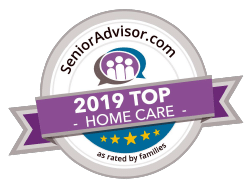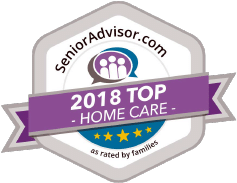Seniors deal with many issues as they age, including those associated with vision. Any vision changes can be scary and threaten seniors’ ability to live independently. When this happens, loved ones can discuss the issues and concerns with seniors to create a support health and wellness plan. That plan may include personal care at home to monitor changes and help seniors adjust when they occur.
What Is Glaucoma?
Glaucoma causes damage to the optic nerve, which carries visual information from the retina to the brain. An increase in intraocular pressure, often known as eye pressure, typically causes the damage. This can eventually result in vision loss and, in extreme situations, blindness. Seniors are more likely than younger people to have glaucoma since aging raises the likelihood of getting the disease.
What Are Glaucoma Symptoms?
“The silent thief of sight” refers to glaucoma since it frequently progresses gradually and without warning signs. The illness can be detected early, when treatment is most successful, thanks to a few indications. These may consist of the following:
- Gradual loss of peripheral (side) vision is a common glaucoma warning sign that might go unrecognized until it is severe.
- As the illness worsens, eyesight may become blurry or distorted.
- Halos surrounding lights: Seniors who look at bright lights, especially at night, may notice halos or glare.
- Seniors with glaucoma may have pain, redness, or discomfort in their eyes.
- Changes in eyeglass prescription regularly: Glaucoma may be indicated by a sudden or ongoing requirement for a stronger medication.
Seniors need to have yearly eye exams, including glaucoma tests, to identify the disease early and stop permanent vision loss. Having personal care at home can help evaluate concerns and changes, discussing these issues with seniors and loved ones.
Treatment Options for Glaucoma
Even though glaucoma cannot be cured, effective therapy can reduce or stop the disease’s progression. Seniors with glaucoma may benefit from the following treatments:
Medication: A doctor may recommend eye drops or oral medications to lower eye pressure. This medication can aid in aqueous humor, the fluid inside the eye, production reduction or improvement, which lowers intraocular pressure.
Laser therapy: Aqueous humor flow can be increased, and eye pressure can be decreased using the minimally invasive treatment of laser trabeculoplasty. When other treatments for open-angle glaucoma are ineffective, it is frequently utilized as the first line of defense.
Surgery: In more difficult situations, surgery may be required to add new drainage channels or enhance existing ones in order to lower eye pressure. Such operations include trabeculectomy, tube-shunt surgery, or minimally invasive glaucoma surgery (MIGS).
Lifestyle changes: Maintaining a healthy lifestyle, which includes regular exercise and a balanced diet, can promote overall eye health and help control glaucoma.
Finally, it should be noted that glaucoma is a dangerous eye ailment that disproportionately affects seniors. To preserve eyesight and sustain the quality of life, routine eye exams, early detection, and proper treatment are imperative. Watching for changes and ensuring seniors attend all their appointments, not just their vision appointments, is something personal care at home can do for seniors.
If you or an aging loved-one are considering personal care at home in Raleigh, NC please contact the caring staff at Affordable Family Care. Serving Raleigh, Greensboro, and the surrounding areas in North Carolina. Call today 919-676-1070.
- The Benefits Of Home Care For Seniors With Arthritis - April 9, 2025
- Does Your Mom or Dad Need 24-Hour Home Care? - March 27, 2025
- Why Sun Protection Is So Important For Seniors - March 7, 2025







